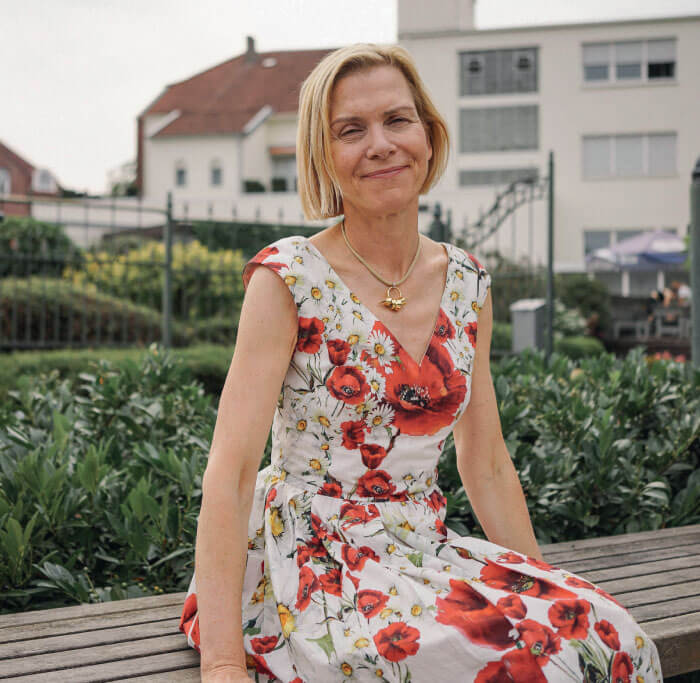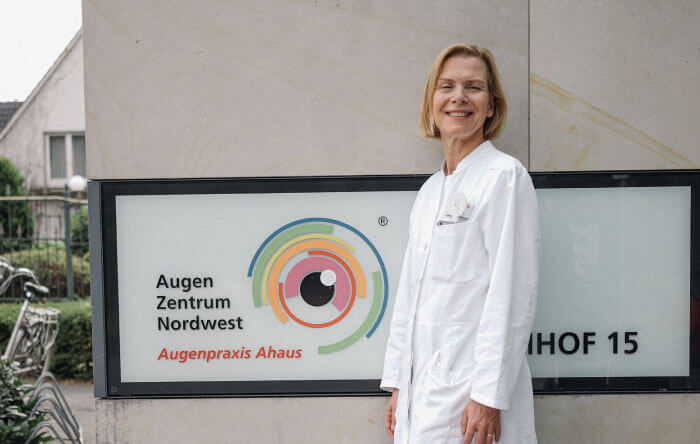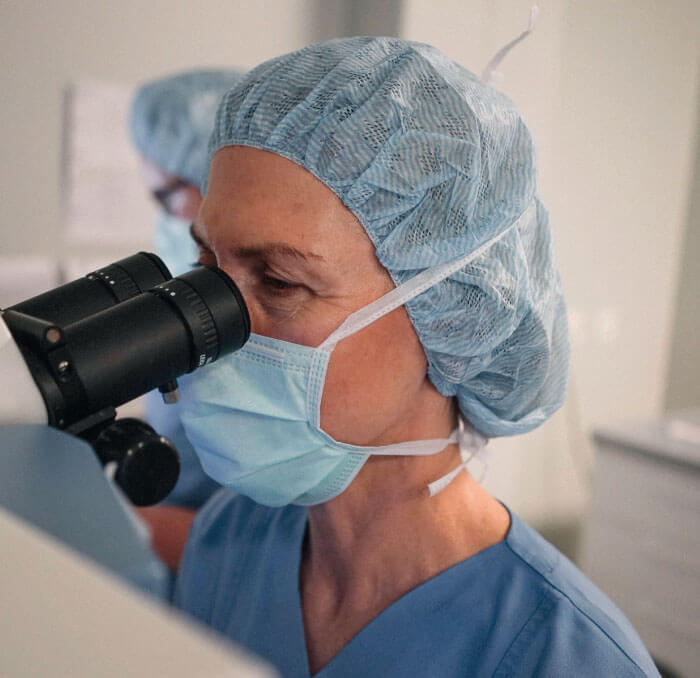
I originally wanted to go into dermatology, as I had been suffering from severe acne – the reason I chose to study medicine in the first place – but there were already too many doctors in Germany by the time I finished my thesis. I had no chance of getting a residency in dermatology. Ophthalmology had always been an alternative for me as I had been wearing contact lenses for several years and liked the complexity of the human eye. Nevertheless, I still like dermatopathology and I can imagine assisting part-time in a laboratory when I retire.
It has changed a lot – and not just in a scientific sense. There are now more women in leading positions, which is why we founded the female eye surgeon network in Germany last year (www.augenchirurginnen.de). We wanted to support our younger colleagues in their careers. From a medical point of view, there have been many changes, both in the anterior and posterior segment. When I started in 1989, the rule in cataract surgery was to suture, with hardly any astigmatism. Implantation size was around 5.5 mm. Foldable lenses then came on the market and the 3.2 mm sutureless incision tunnel was introduced. Avoiding posterior capsular opacification was a big issue and I took part in many studies trialing different lens designs to prevent that from happening. Another big change was FLACS, which came on the market around 2010. I was sceptical at first, but I now consider it to be the future of cataract surgery.

Every young surgeon remembers the first time a patient says: “Thank you!” I performed strabismus surgery on a six-year-old girl during my time at Dortmund and, before she left the hospital, she brought me a bouquet of flowers. It’s a moment I will never forget. Another moment of great pride was when I opened my clinic in 2009 and all surgeries went well without any complications. A year later I was named “top surgeon in cataract and refractive surgery” by FOCUS magazine in Germany – an award I have gone on to win another 10 times. Last October, I won a national prize for businesswomen – an acknowledgment of my achievements of the last 10 years. Most people believe that a doctor shouldn’t also be a business person, but, in my opinion, working efficiently – like a business person – has advantages for both patients and clinics.
I’m fully focused on the business, which I share with my partner, Olaf Cartsburg. Outside of surgery, organizing and optimizing our clinic is my primary focus. I am currently working to improve patient workflow, especially for wet AMD patients, so we can offer our staff (all 220 of them!) a great place to work and our patients the best possible therapy.
Artificial intelligence and telemedicine will become more important. Retinal examinations will take place outside the clinic so patients will only need to see an ophthalmologist if something pathological is found in the examination.
I would like medicine to overcome vision-threatening diseases like AMD, glaucoma and retinitis pigmentosa, and see a change in how we treat wet AMD. We currently have to inject patients every one to three months, which is problematic. I dream of having OCT controls close to our patients’ homes, so they don’t have to wait around for a diagnosis. We could just phone them later to tell them the result.
First, ophthalmology is far more than cataract surgery! There are so many interesting fields to discover – don’t only focus on cataract. We need doctors with experience in glaucoma, uveitis, strabismus, and more. Second, don’t only focus on ophthalmology! Soft skills like team building and patient communication are equally important. Third, you have to work hard for what you want in life. Sometimes that means having to leave other things behind but, by doing so, you will ultimately progress. My last piece of advice is for women: you do not have to dress like a man to be successful. Wear whatever you feel comfortable in. “Business wear” doesn’t have to mean suits.
Not everything in life can be solved by machines and money. Patients need quality personal time with their doctor to feel reassured, while doctors need good teams behind them to offer the best level of care. It is only through this combination that our profession can be successful.

